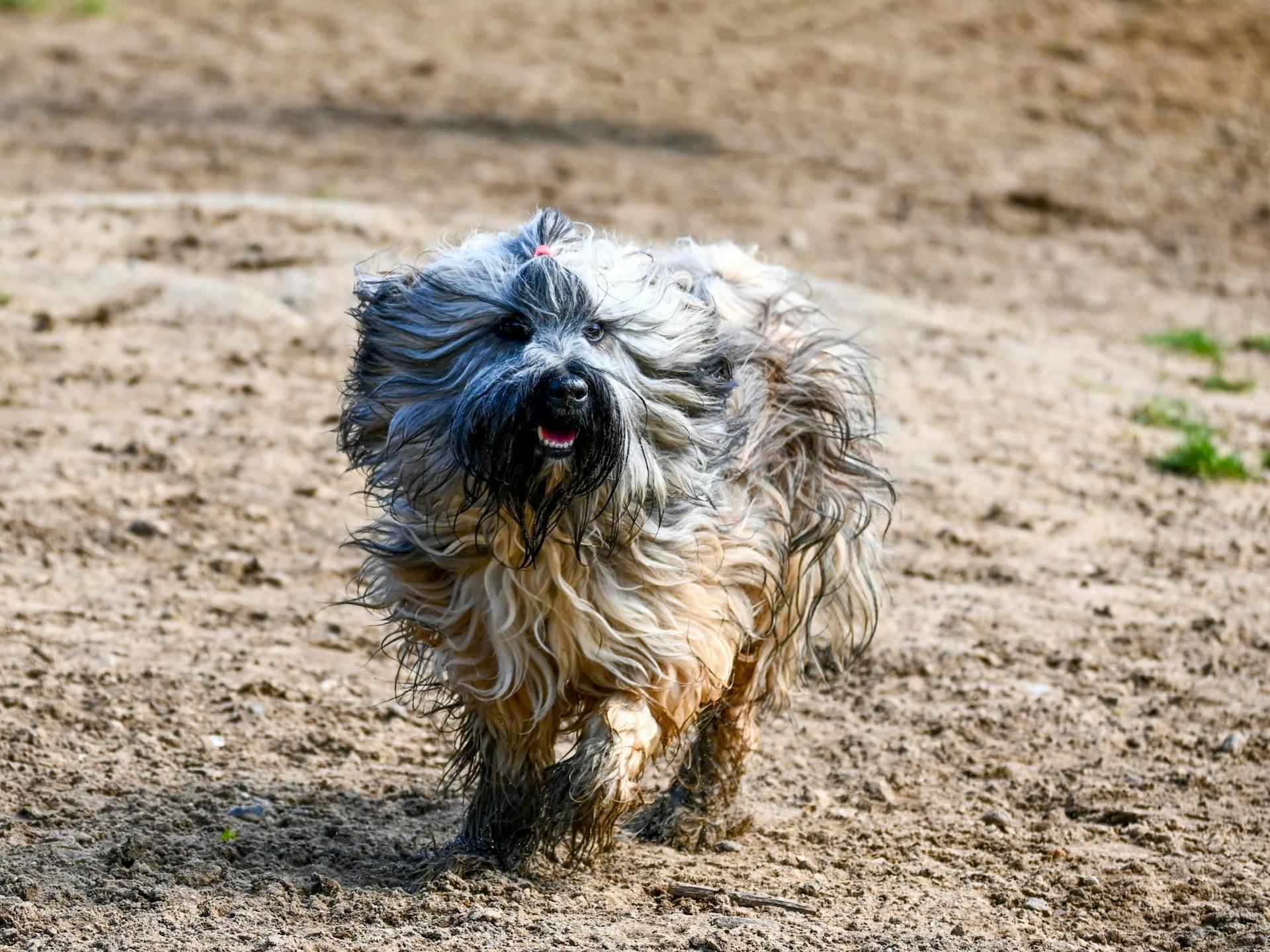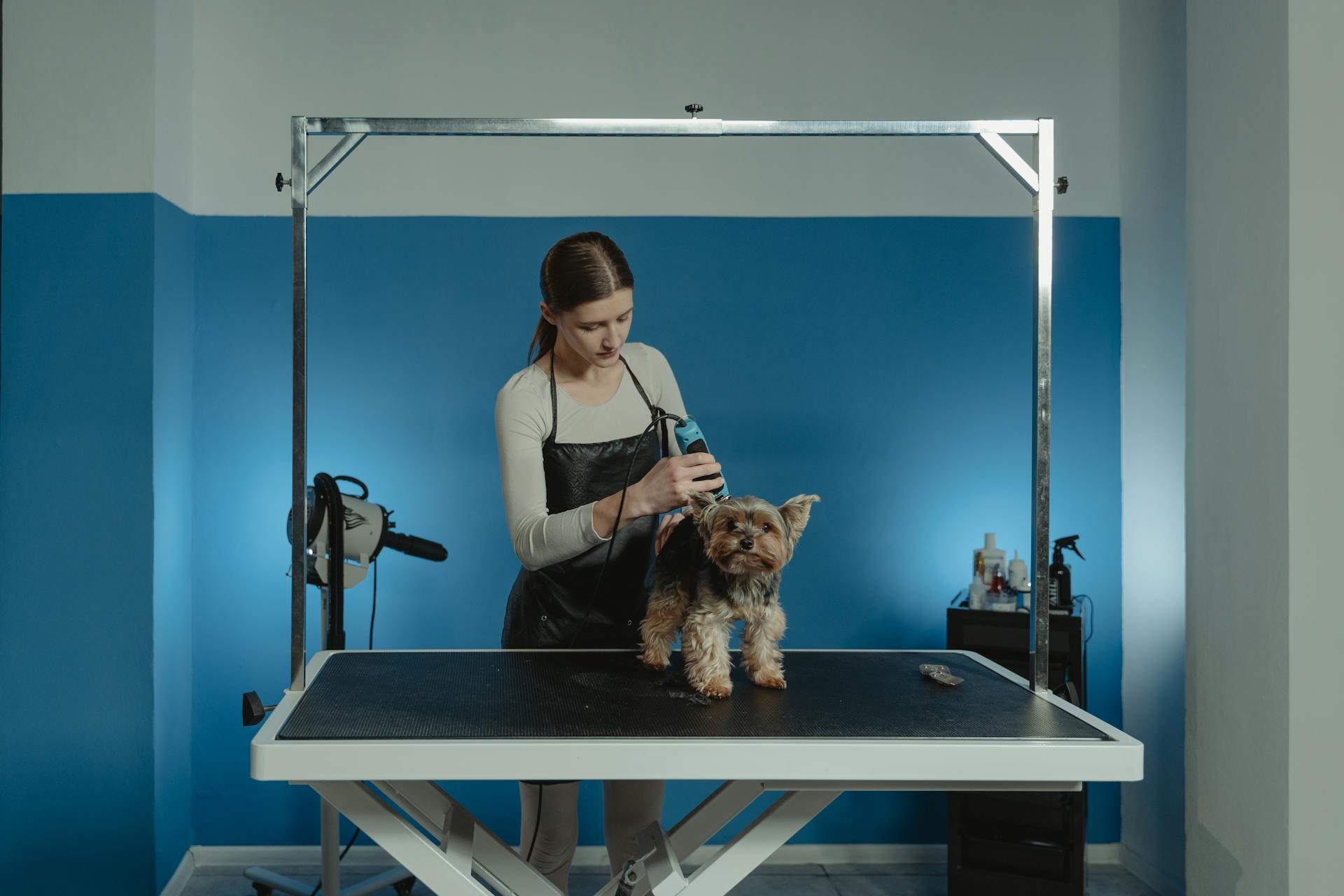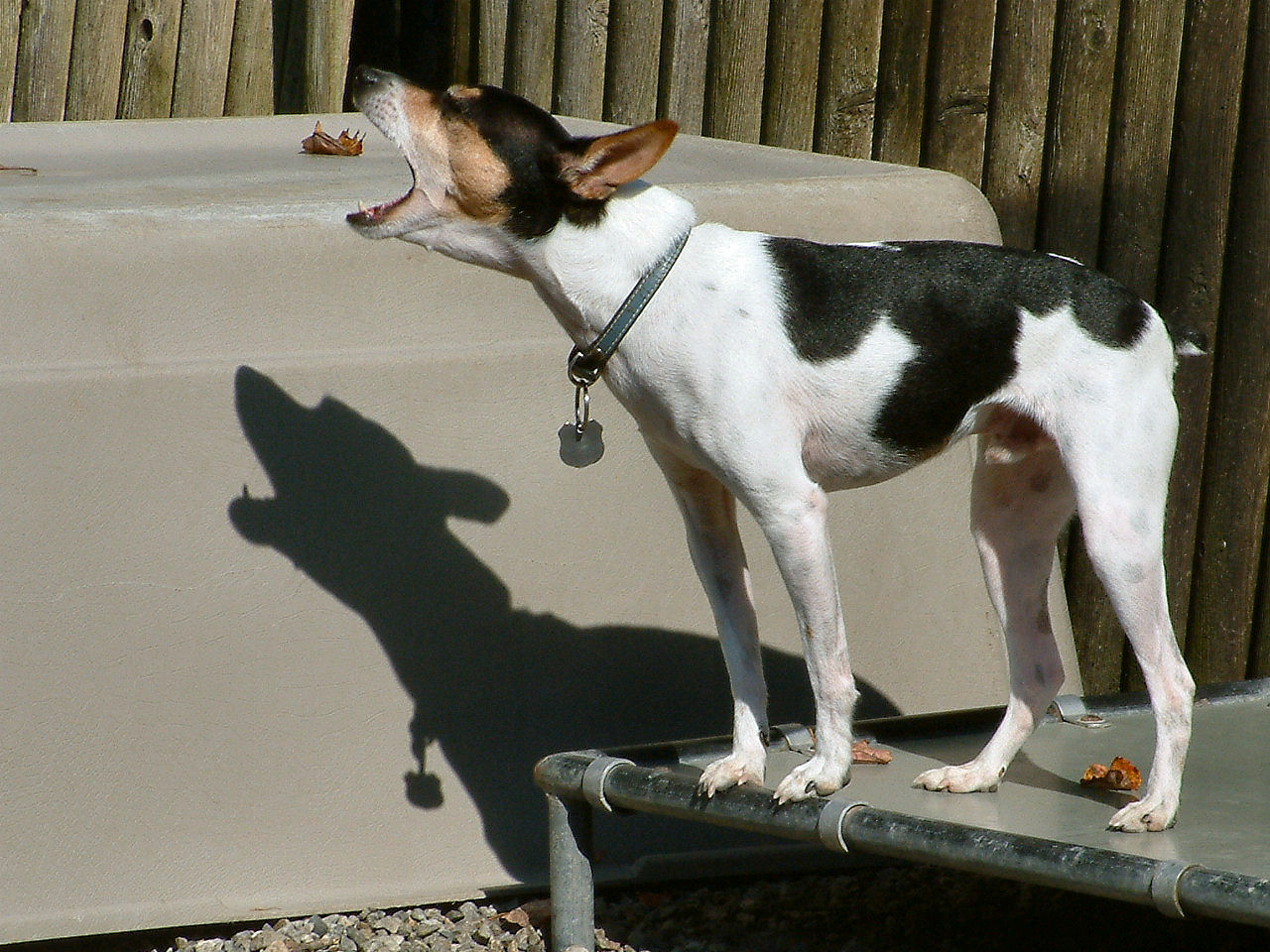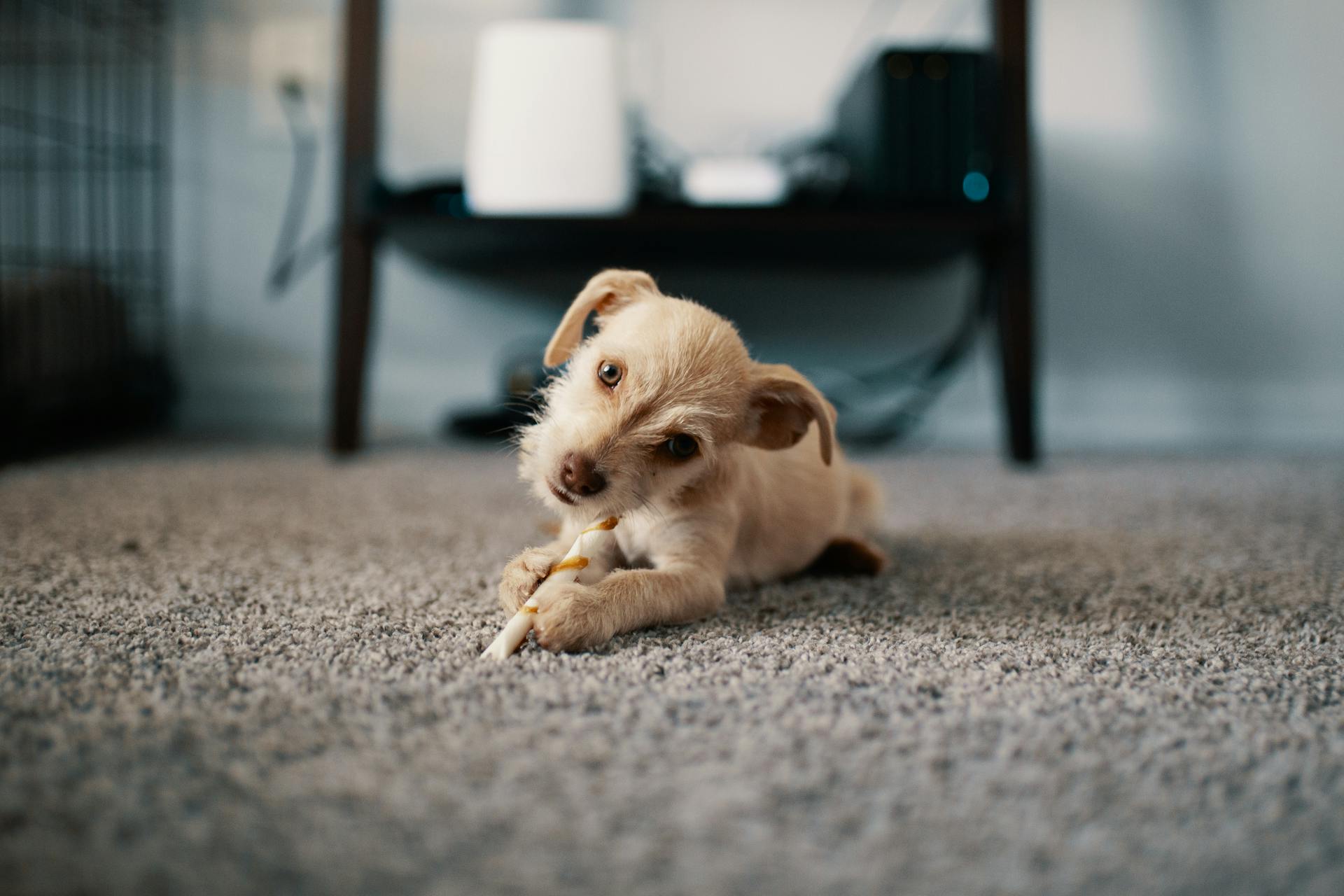
Rat Terrier puppies are a joy to be around, and with the right care, they'll grow into loving and loyal companions.
Their small size, typically weighing between 10-25 pounds, makes them a great fit for apartment living or homes with small yards.
Their short coats require minimal grooming, but they do need regular nail trimming to prevent overgrowth.
Rat Terrier puppies are known for their intelligence and trainability, making them a great choice for first-time dog owners.
Physical Characteristics
The Rat Terrier puppy you're bringing home will be a bundle of energy and joy, and it's essential to understand their physical characteristics to give them the best care. They typically range from 10 to 25 pounds in weight and stand 10 to 18 inches at the shoulder.
Their ears are one of their most distinctive features, and they can stand straight up or be semi-erect with the tips pointed upwards or flopping down. Their eyes are oval-shaped and set wide apart, with a color that ranges from dark brown to hazel, and sometimes gray, usually corresponding with the color of their coat.
The Rat Terrier's coat comes in a wide range of colors, including black and white or tri-color, and can be any pied pattern, meaning there are large patches of one or more shades, along with a combination of white. Their tail can be docked, or they can have a bobtail or long and graduating to a point at the tip.
Here are the Rat Terrier sizes:
Appearance
The Rat Terrier is a small and sturdy dog, with a muscular build that's perfect for their energetic personality. They come in two sizes: Miniature (10-13 inches) and Standard (13-18 inches).
Their expressive, alert faces reflect their zest for life, with oval-shaped eyes that range from dark brown to hazel, and sometimes gray. The nose color varies depending on the color of their coat.
Rat Terriers have a wide combination of colors in a pied pattern, with large colored patches mingled with white. They can be white, black with tan or rust, white and black or tan, red, lemon, blue, chocolate, or orange.
Their ears can stand straight up or be semi-erect with the tips pointed upwards or flopping down, which is known as button ears. They have a short, smooth coat with dense, shiny fur that requires only weekly brushings with a soft brush or rubber curry mitt.
Here are the different types of Rat Terrier sizes:
Their tail can be docked, but some breeders prefer a natural, undocked tail, which is accepted in the breed standards. They can also have a bobtail, which is a naturally short tail.
On a similar theme: American Bully Tail
Characteristics of the
The Rat Terrier is a high-energy breed that requires regular exercise to stay happy and healthy. They need a large, fenced-in space to run around, so if you live in an apartment or have a small yard, this breed might not be the best fit.
Rat Terriers have strong prey drives, which means they'll chase small animals if given the chance. Unless you've done extensive recall training or desensitization, it's best to keep them on a leash in open spaces.
Their energy level is matched only by their playfulness, making them a great companion for active families. They love to run, jump, and play, and they'll keep you on your toes if you don't provide enough physical and mental stimulation.
Here are some key characteristics of the Rat Terrier breed:
If you're an experienced dog owner, you might appreciate the Rat Terrier's high trainability and intelligence. With patience and consistency, you can teach them to behave well and even participate in agility training or other dog sports.
Temperament and Personality
Rat Terriers are naturally very trainable and social, but they need extensive socialization from an early age, especially during the first three months of life.
Their social sensitivity makes them wary of strangers, but with proper socialization, they'll warm up to visitors.
Rat Terriers are intelligent and active, requiring a lot of mental stimulation and exercise to stay happy.
They're loyal to their owners and respectful if trained properly at a young age.
Rat Terriers are incredibly perceptive and can intuitively respond to your moods.
They have a great desire to please and love praise, making them great family pets.
To socialize your Rat Terrier puppy, enroll them in a puppy kindergarten class, invite visitors over regularly, and take them to busy parks and stores that allow dogs.
Early socialization is crucial to ensure your Rat Terrier puppy grows up to be a well-rounded dog.
Rat Terriers are naturally inclined to be good watchdogs, so don't be surprised if they bark when someone comes to the door.
They're also naturally inclined to follow their owners around the house and love to play.
Rat Terriers need a lot of exercise to stay happy and healthy, and a tired dog is indeed a good dog.
Health and Care
A rat terrier puppy is a bundle of energy and joy, but it's essential to remember that they require regular care and attention to stay healthy and happy. The average lifespan of a well-bred rat terrier is 16-19 years.
Their hardy nature makes them a great breed for families, but they can be prone to certain health issues such as patellar luxation, cardiac abnormalities, and hip dysplasia. Regular check-ups with your veterinarian can help identify these issues early on.
To keep your rat terrier puppy healthy, it's crucial to provide a balanced diet that meets their nutritional needs. Feed them high-quality dog food, and avoid overfeeding, as this can lead to obesity and related health problems. A general rule of thumb is to feed your rat terrier between 0.25 and 2 cups of food per day, depending on their size and activity level.
Here are some common health issues that can affect rat terriers:
- Hip Dysplasia: This often-genetic condition can occur when the hip joints are loose, causing pain, cartilage loss and scar tissue if not addressed.
- Patellar Luxation: This causes the kneecap to dislocate, resulting in pain and loss of function.
- Legg-Calve-Perthes Disease: The hip joint is formed from the ball and socket. In Legg-Calve-Perthes disease, the ball, or top of the femur bone, starts to deteriorate, which can be very painful.
- Heart Disease: Heart problems can be common when raising a Rat Terrier into their senior years.
- Eye Disease: Rat Terriers are prone to a certain disease called primary lens luxation that can lead to teary, red and/or cloudy looking eyes.
Remove
Removing clutter from your home can be a great way to reduce stress and improve your mental health. Research shows that a cluttered environment can increase anxiety by up to 30%.
Decluttering can also have a significant impact on your physical health. For example, studies have found that people who live in cluttered homes are more likely to have higher blood pressure and cholesterol levels.
Removing expired or unused medications from your home is a simple and effective way to reduce the risk of medication overdose. The FDA recommends disposing of expired or unused medications through a medicine take-back program or by taking them to a designated collection site.
Health

Rat Terriers are generally a hardy breed, but like all breeds, they can be prone to certain health issues. The average lifespan of a well-bred Rat Terrier is 16-19 years.
Regular outcrossings throughout the breed's history have made them a very healthy breed, but recent popularity has brought some common issues to the forefront. The Canine Health Information Center recommends testing for patellar luxation, cardiac abnormalities, pancreatic issues, hip dysplasia, and Legg–Calvé–Perthes syndrome.
One of the most common health problems in Rat Terriers is hip dysplasia, which can occur when the hip joints are loose, causing pain, cartilage loss, and scar tissue. Treatment options include weight management, physical therapy, or surgery.
Rat Terriers are also prone to patellar luxation, which causes the kneecap to dislocate, resulting in pain and loss of function. It can be genetic, and treatment options include joint supplements, pain medication, and in severe cases, surgery.
Heart disease is another common issue in Rat Terriers, especially as they age. Your veterinarian will want to monitor their heart for any concerns, and if there's an issue with their heart or the heart valves, these can be addressed.

Here are some common health problems in Rat Terriers:
- Hip Dysplasia: loose hip joints, pain, cartilage loss, and scar tissue
- Patellar Luxation: kneecap dislocation, pain, and loss of function
- Legg-Calve-Perthes Disease: deterioration of the ball of the femur bone, pain
- Heart Disease: heart problems, heart valves
- Eye Disease: primary lens luxation, teary, red, and/or cloudy eyes
It's essential to monitor your Rat Terrier's diet and nutrition to prevent obesity and related health issues. A high-protein, high-quality dog food is recommended, and treats should be given in moderation.
Feeding your Rat Terrier the right amount of food is crucial, as overeating can lead to heart disease, obesity, and diabetes. The recommended daily amount of high-quality dry food is as follows:
Remember to measure your Rat Terrier's food and feed them twice a day to keep them in good shape.
Care
Caring for a Rat Terrier requires attention to their exercise needs. They need daily exercise to stay happy and healthy.
Rat Terriers are high-maintenance in terms of exercise, and they need a pet parent who is as determined and dedicated as they are. They thrive on daily activity, whether it's a long walk or a fun play session.
To prevent destructive behavior, crate train your Rat Terrier if you plan to leave them alone. This will help protect your belongings and prevent unwanted veterinary bills.

Rat Terriers are people dogs and shouldn't spend their lives locked up in a crate or kennel. A few hours in a crate at a time is acceptable, but they need plenty of time to explore and play.
Feeding your Rat Terrier the right amount of food is crucial. The recommended daily intake is between 0.25 cups and 2 cups of high-protein dog food, depending on their size, age, and activity levels.
Here's a rough guide to help you estimate your Rat Terrier's daily food needs:
Remember to give treats in moderation, as overeating can lead to serious health issues like heart disease, obesity, and diabetes.
Grooming
Grooming is an essential part of Rat Terrier care. They have a short, smooth coat that requires minimal maintenance, but regular grooming is still necessary to keep them healthy and happy.
A weekly brushing with a soft brush or rubber curry mitt is all they need to remove loose hair and debris. This will also help prevent matting and tangling.
Additional reading: Australian Silky Terrier Grooming
Daily teeth brushing is ideal, but even weekly brushing can help protect your Rat Terrier against dental and oral disease. You can also use dental treats in moderation, but remember that brushing is a crucial part of their oral care.
Their nails need to be trimmed about once a month, as long nails can be painful for them to walk on. Check them weekly, and use your judgment on how often to trim them.
Ear cleaning is also important, as excess wax and debris can cause infections. Check their ears once a week for any signs of redness or swelling, and clean them gently with a cotton ball and pH-balanced ear cleaner if necessary.
Here's a quick rundown of their grooming needs:
By following these simple grooming tips, you'll be able to keep your Rat Terrier clean, healthy, and happy.
Frequently Asked Questions
How big will a Rat Terrier get?
A Rat Terrier typically weighs between 10-25 pounds and stands 10-18 inches tall at the shoulder.
What two breeds make a Rat Terrier?
A Rat Terrier's ancestry includes a mix of several breeds, but no two specific breeds are universally recognized as its primary components. The Rat Terrier's diverse heritage is a result of its development from various terrier breeds.
Do rat terriers like to be held?
Rat terriers love human interaction and are happy to be held and cuddled, especially after exercise. They make great lap dogs for families who want a snuggly companion.
Why do rat terriers bark so much?
Rat Terriers bark due to excess energy, often a sign they need more exercise. Excessive barking can be addressed with patience and positive reinforcement training.
Featured Images: pexels.com


